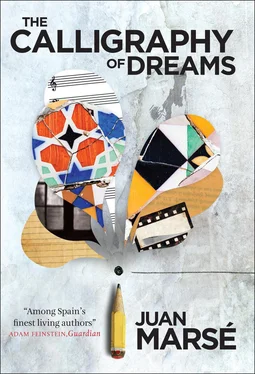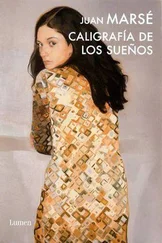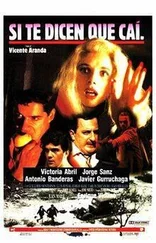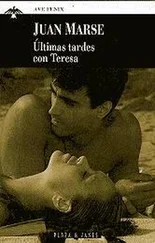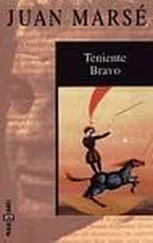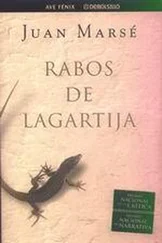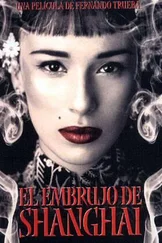Later that night, alone at home and sitting at the dining-room table in the same position and in the same chair as his father the last time he saw him, the paper appears before his eyes in all its pink nakedness, and nothing that occurs to him seems convincing. After an hour he gets up, wraps the scarf round his neck, and rushes off to Señor Huguet’s coffee-roasting shed beneath a clear, starry sky with a full moon. While he is turning the handle, the dirty rainwater swirls yet again round the open drain, and when he reaches out his hand half-heartedly at the last minute, he burns his fingers. He soothes his hand in a bucket, and Señor Huguet takes him to task: if he wants to pull a piece of wood out because the fire’s too hot, he should use the tongs or put on gloves.
Returning home in the early hours, he puts the bag of coffee on the sideboard and then, without taking off his scarf, he sits down again at the table and picks up the pen, his fingertips still smarting. In his mind’s eye he can picture everything he was thinking as he knelt in front of the fire, one hand turning the drum filled with coffee and sugar, the other plunged into the bucket of water. Painstakingly, he writes the name on the envelope, giving the capital V a joyous flourish to the right, just as he remembers having caught a glimpse of on that fateful night of drunken nausea on Las Ramblas.
He sleeps for three hours, head down on the table. At eight in the morning his mother returns from the Residence. She’s brought half a puff pastry cream cake the nuns have given her from the kitchen. He’s already prepared coffee, warmed the milk, and toasted the bread on the electric burner. While they are having breakfast together, his mother scolds him yet again for getting up so early.
“You should be asleep. You’re working now.”
“I’m not sleepy.”
“I can make the coffee. Besides, I drink enough of it during the night.”
“But the coffee the nuns give you isn’t as good as this, is it, Mother?” She looks so pensive, sitting there with her hands round the bowl of coffee, that he stares at her for a while without saying anything. Eventually he asks: “What are we going to do, Mother?”
‘What do you mean?” She studies his face and understands. “Wait. There’s nothing else we can do.”
As ever, she has come home tired and wanting to go straight to bed, and yet she does all she can to prolong this impromptu early morning conversation. It’s the time of day when sleep is calling that she feels her son is at his closest and most distant. Another five or ten minutes to raise his spirits.
“This bad luck won’t last for ever,” she says. “Don’t worry, you’re not going to spend your life roasting coffee …”
“No, I don’t mind, really.”
“Señor Huguet is looking for something better for you. One of his brothers-in-law has a grocery store on Calle Aragón. It’s a very important place, they deliver to people’s homes, and he says that before long they’re going to need another assistant, or delivery boy … I know it’s not perfect, Son, but at least it will be less tiring than working at night.”
“It’s all the same to me.”
“Well, we can think it over, can’t we? Go on, talk to me. What’s the news in the neighbourhood …? Do you know the other day I met Violeta in the street? She looks pretty in her nurse’s uniform and cap, don’t you think?”
She says she thinks Violeta has high hopes of her job, in spite of the worries her mother gives her: according to her, she has lost control of her drinking and is deteriorating day by day. She feels sorry for her friend Victoria, and her behaviour confuses her. She finds it hard to believe that losing the love of any man can lead a woman to such a terrible lack of self-awareness and despair, especially a woman who had not previously shown any sign of weakness when faced with adversity. Of course everything she had been forced to put up with from that idiot of a husband of hers over the years must have something to do with it … She intends to go and see her one of these days, she adds as she gets up from the table and collects the dishes, I’ll take her some second-hand clothes and a packet of coffee as a gift. She suggests they both go.
“Why should I go, Mother?” he asks anxiously. “What could I say to her …? Leave that, it’s my turn today.”
He carries the bowls and the rest of the things into the kitchen. Shortly afterwards, while he is having a shower, he glances down at the plughole, where the soapy water round his feet slows its whirling for a second, and this time the spinning envelope seems to let itself be plucked out and rescued before it vanishes for the umpteenth time into the dark drain. Ringo dresses, recovering the smell of the night in his jersey and scarf. Before going out he approaches his mother’s bedroom door, listening hard. Two sneezes tell him she isn’t asleep yet. She must be praying to the Infant Jesus of Prague on the bedside table, asking him to protect the Rat-catcher, wherever he may be now. Has her Infant ever listened to her?
“I’m going, Mama. Do you need anything?”
“No.”
He falls silent for a while before his next question:
“When are we going to France, Mama?”
“What did you say?”
“I said, when are we leaving here …”
This time she is the one who takes time to respond:
“Leaving here? Why should we be leaving, Son?” Then another, longer silence. “Why do you ask?”
“No reason. Get some rest.”
*
He’s been thinking it over carefully, and for three days he hasn’t been back to the Rosales bar so as not to run into Violeta. When he does return to his daily routine, he does something he has never done before: he asks Señor Agustín for a pack of cards and starts playing Patience while waiting for Señora Paquita to come back from the market in Calle Camelias and take over from her brother at the bar. He thinks it would be better to do what he is planning in the early afternoon, when she spends more time in the kitchen than serving, but he doesn’t want to wait any longer. Señor Frías has just opened his barber shop next door, and has come into the bar for his early morning coffee. Señor Agustín, leafing through a newspaper on the counter, satisfies his customer’s curiosity without much enthusiasm: Yes, indeed, Señora Mir was interned in the Hospital San Pablo late yesterday afternoon. Some boys in El Guinardó found her curled up behind some bushes near the highway up to El Carmelo, and told the staff at the nearby Padre Alegre Cottolengo. They stole her bag, earrings, bracelets, and a basket with herbs in it. Or she lost them, who knows? So she slept there like a log all night until those boys found her? Señor Agustín doesn’t know much more, and still can’t quite believe what happened, he can’t imagine her sleeping out all night, in this cold … Ringo can see it, it’s not hard to imagine: lying on her side demurely, ready to accept whatever came her way, her pink knees pressed together, her cheek resting on her plump hands, the eyelids with their long, greasy lashes closed over her fantasy. Taken in as an emergency to the San Pablo, says Señor Agustín. A nun who knows her informed her daughter and her mother-in-law. A wound to her head and bruising on her legs, fortunately nothing serious, apparently they’re bringing her home tomorrow, and the Badalona grandmother is already here to lend a hand. When she came round she was as right as rain, and guess what she asked for, the cheeky devil? That’s right, a little brandy! She didn’t want to talk to anybody. When she did explain what had happened, she did so in a rambling, confused manner, but according to her daughter what she said made sense: that afternoon she had been visiting her husband in the asylum. She took him Virginia tobacco and a new pair of pyjamas, cleaned his nails, and then went to Badalona to see her mother-in-law in the market, at the flower stall she has there, and finally visited the Cottolengo, where she had promised to take some children’s clothes. And that when she left there it was already dark, and she can’t remember anything more. And guess what she said when she finished, bursting into tears? Señor Agustín concludes slyly: that she wasn’t at all bothered her bag or her bracelets had been stolen, that the only thing she regretted losing was a ring made from a chicken or pig bone, would you believe?
Читать дальше
